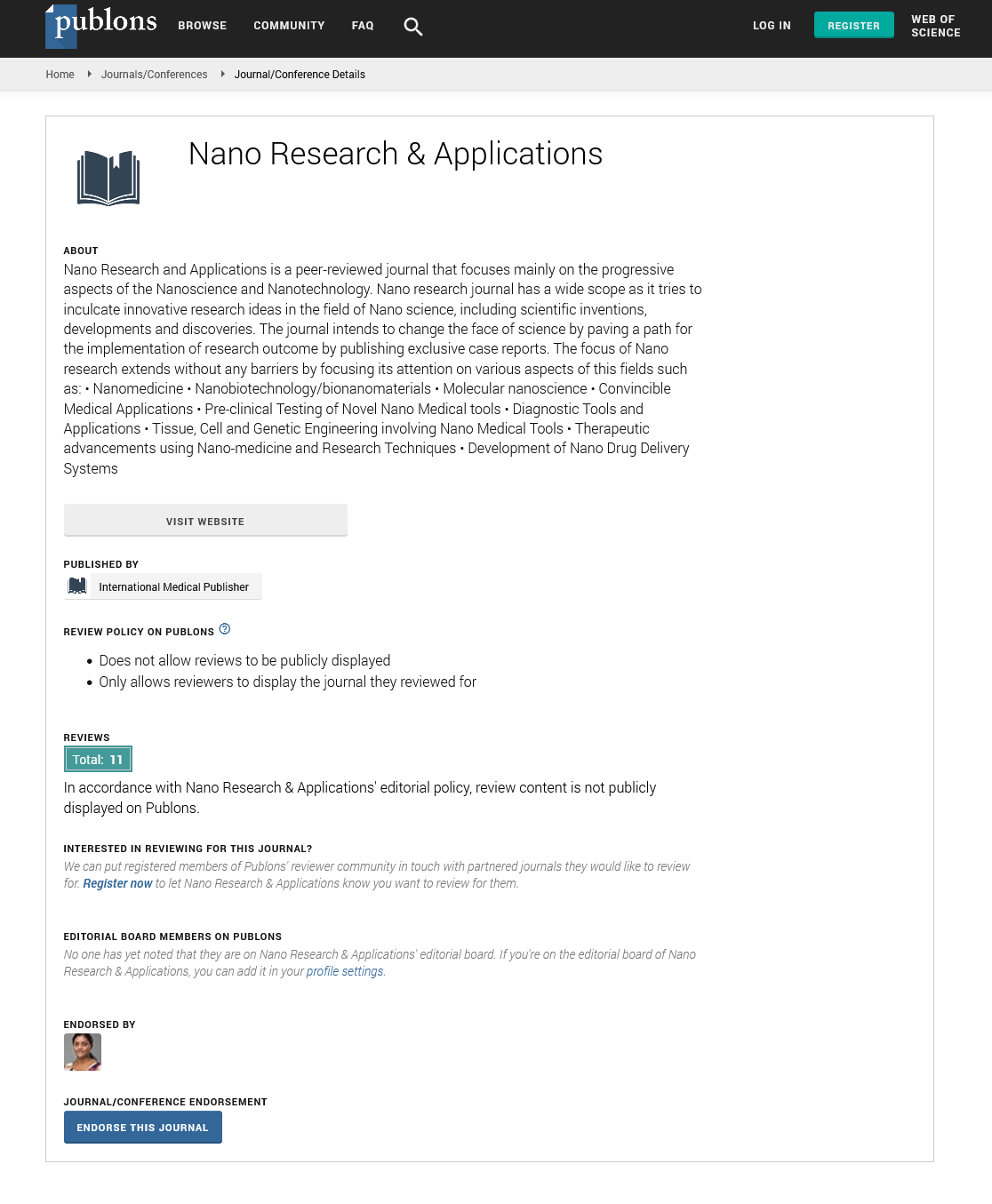ISSN : 2471-9838
Nano Research & Applications
Nanomaterials as lubricant additives for more efficient and more environment friendly engine lubricant
17th Edition of International Conference on Emerging Trends in Materials Science and Nanotechnology
April 26-27, 2018 Rome, Italy
Fabrice Dassenoy
Ecole Centrale de Lyon, France
Keynote: Nano Res Appl
DOI: 10.21767/2471-9838-C1-007
Abstract
There has been growing interest in nanoparticles for tribological applications over the past 20 years. Studies have shown the remarkable lubricating properties, viz., friction-reducing and anti-wear, of these small objects. This makes them potential candidates for replacing the molecular lubrication additives currently used in automobile lubricants, known to be pollutants and less efficient in some specific conditions. This has not gone unnoticed to the oil companies and the car manufacturers. All of them are faced with the problem of providing lubricants that meet the needs of the technological evolution of engines while respecting ever stricter environmental norms. Among the nanoparticles with proven tribological performance are carbon nanotubes and onions, boron nitride nanoparticles, and inorganic fullerene-like (IF) metal disulfides (IF-MoS2, IF-WS2). The latter exhibit the best friction-reducing and anti-wear properties ever observed. These nanoparticles have been the subject of detailed investigation in the lab for more than fifteen years now, and during this time, many key issues have been tackled, such as the conditions leading to these properties, the lubrication mechanisms coming into play, and the influence of parameters such as size, structure, and morphology of the nanoparticles on their tribological properties and the lubrication mechanisms. These years of research have given us a good understanding of the way these nanoparticles behave, and we can now identify the key parameters to be adjusted when optimizing their lubrication properties. During this presentation the performance and the lubrication mechanism of the metal disulfide nanoparticles will be presented and we will see how to move from the nanoparticle to the development of new highly efficient nanolubricants for automotive applications (engine and gearboxes).Recent Publications 1. Jenei I and Dassenoy F (2017) Friction coefficient measured on a single WS2 nanoparticle: an in situ transmission electron microscope experiment. Tribology Letters 65(86):2-8. 2. Ussa Aldana P, Dassenoy F, Vacher B, Le Mogne T and Thiebaut B (2016) WS2 nanoparticles anti-wear and friction reducing properties on rough surfaces in the presence of ZDDP additive. Tribology International 102:213-221. 3. Ussa Aldana P, Dassenoy F, Vacher B, Le Mogne T, Thiebaut B and Bouffet A (2016) Antispalling effect of WS2 nanoparticles on the lubrication of automotive gearboxes. Tribology Transactions 59(1):178-188. 4. Rabaso P, Dassenoy F, Ville F, Diaby M, Vacher B, Le Mogne T, Belin M and Cavoret J (2014) An investigation on the reduced ability of IF-MoS2 nanoparticles to reduce friction and wear in the presence of dispersants. Tribology Letters 55(3):503-516. 5. Lahouij I, Bucholtz E, Vacher B, Sinnott S and Dassenoy F (2012) Lubrication mechanisms of hollow-core inorganic fullerene-like nanoparticles: coupling experimental and computational works. Nanotechnology 23:375701.
Biography
Fabrice Dassenoy has completed his PhD in Materials Science (1999) from the Paul-Sabatier University of Toulouse, France. He spent three years (20002002) in Surface Physics Department at the Max-Planck Institute of Berlin, Germany before joining École Centrale de Lyon first as Assistant Professor (2002-2011) and got promoted to Professor in 2012. As an expert in nanomaterials, his research conducted at the Tribology and System Dynamics Laboratory (LTDS) is related to the study of the tribological properties of nanoparticles used as lubricant additives, with a particular interest in understanding the lubrication mechanisms of these nanomaterials and in the optimization of their lubricating properties, especially for automotive applications. He has published more than 50 articles and four patents in this field and got the Taiho Encouraging Award for Young Tribologists in 2009. He teaches Materials Science at École Centrale de Lyon with a focus on the characterization techniques. He is currently in charge of a research group called Understanding Fundamental Phenomena in Tribology.
Email:fabrice.dassenoy@ec-lyon.fr
Google Scholar citation report
Citations : 387
Nano Research & Applications received 387 citations as per Google Scholar report
Nano Research & Applications peer review process verified at publons
Abstracted/Indexed in
- Google Scholar
- China National Knowledge Infrastructure (CNKI)
- Directory of Research Journal Indexing (DRJI)
- WorldCat
- Publons
- Secret Search Engine Labs
- Euro Pub
Open Access Journals
- Aquaculture & Veterinary Science
- Chemistry & Chemical Sciences
- Clinical Sciences
- Engineering
- General Science
- Genetics & Molecular Biology
- Health Care & Nursing
- Immunology & Microbiology
- Materials Science
- Mathematics & Physics
- Medical Sciences
- Neurology & Psychiatry
- Oncology & Cancer Science
- Pharmaceutical Sciences
